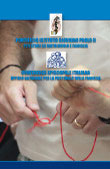|
|
| HOME ENG » Church » The Gospel for the Family » March 29th - Palm Sunday (Isa 50:4–7; Ps 21; Phil 2:6–11; Mk 14:1 - 15, 47) 

 |
|
|
March 29th - Palm Sunday (Isa 50:4–7; Ps 21; Phil 2:6–11; Mk 14:1 - 15, 47) 

Isaiah’s Song of the Lord’s Servant is a prophecy of Jesus and of his task, which is inseparable from suffering and, at the same time, from the confident faith in the Father. He is chosen to serve God’s Word and, just like Jeremiah, in exchange, he is mistreated and experiences anxiety. Yet, this life marked by suffering could not dry up the sea of trust in the Lord. The hymn in Paul’s letter to the Philippians tells the story of the life of Christ, who first lowered himself to annihilation in order to rise again and resurrect. Jesus is the antitype of the first man. Adam, created in the image of God, claiming to be God’s equal, tried to usurp the divine condition. Jesus, on the contrary, although of divine condition, is not jealous, but lives it as a gift, by lowering himself to become a man. The incarnation is self-emptying, and the human condition assumed is that of a servant at the lowest level: a slave. In Mark's Gospel, Jesus ends his journey to Jerusalem; he enters the city on the back of a donkey's colt, a sign of power obtained through meekness, service and self-giving. The entrance is also judgment against the disbelieving city, to which yet another chance is given to convert and recognize that the Messiah is coming not as a ruler, but as a humble king and liberator.
|
|
 | |
|
|


















